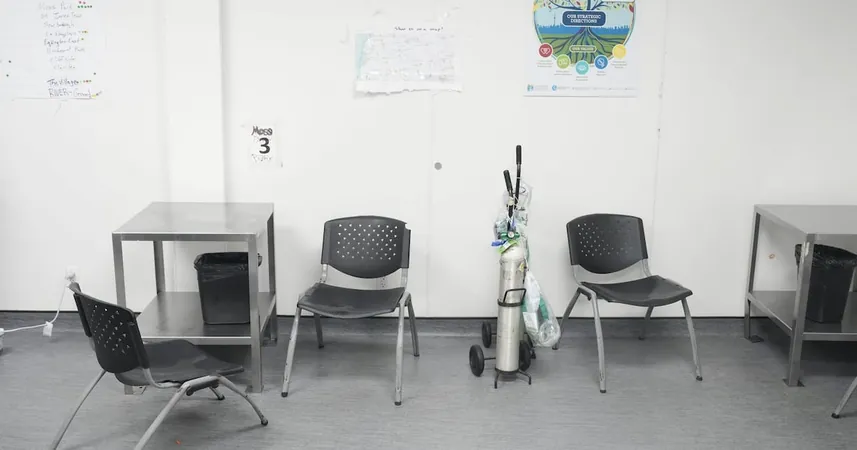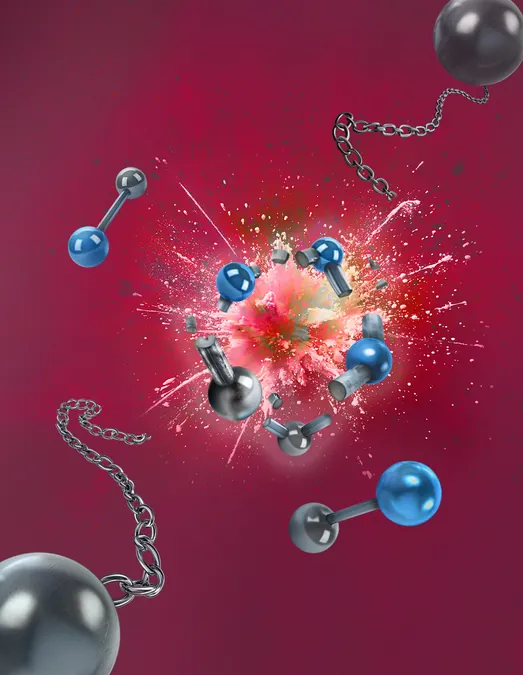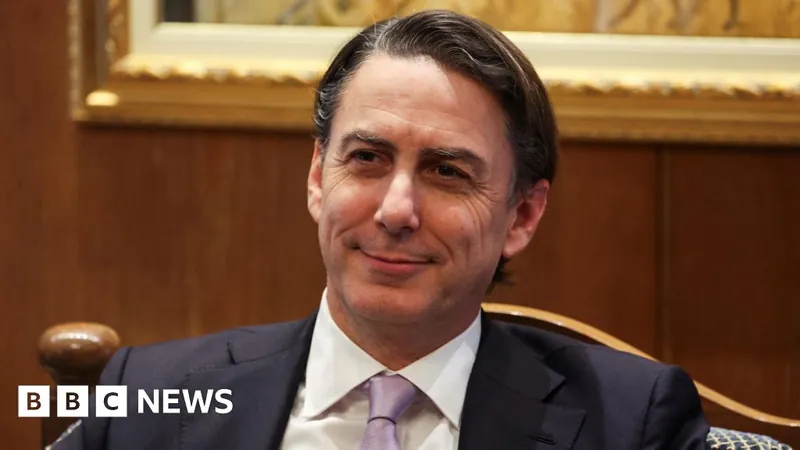
Shocking Changes Ahead: Ontario Moves to Ban Supervised Consumption Sites Near Schools and Daycares!
2024-11-18
Author: Charlotte
Introduction
TORONTO — In a controversial move, Ontario's government, led by Premier Doug Ford, has introduced a bill aimed at shutting down 10 supervised consumption sites that officials believe are too close to schools and daycares. This drastic measure, announced on Monday, has sent shockwaves through communities already grappling with addiction issues.
Government's Stance
Health Minister Sylvia Jones has stated unequivocally, “I want to be very clear, there will be no further safe injection sites in the province of Ontario under our government.” Her insistence on this point highlights the province's shift from harm reduction strategies to an abstinence-based model, a decision that has sparked fierce debates about the future of addiction treatment in Ontario.
Proposed Legislation
Under the proposed legislation, municipalities will require the health minister's approval to apply for exemptions to establish new supervised consumption sites. Previously, local governments were able to directly approach the federal government without provincial oversight—a system that the current administration is eager to change.
Funding New Initiatives
In a bid to combat homelessness and addiction, Ontario plans to invest $378 million to launch 19 new "homelessness and addiction recovery treatment hubs," known as HART hubs. These facilities aim to provide a pathway from addiction treatment to recovery, set to be operational by the end of March. Meanwhile, the closure of the 10 consumption sites will proceed regardless of whether the new hubs are fully operational.
Concerns from Critics
Critics argue that the closure of these supervised consumption sites will lead to an increase in overdose deaths. Health-care workers, advocates, and those experiencing homelessness have expressed significant concern over the impending closings. Mskwaasin Agnew of Toronto Indigenous Harm Reduction stated, “We will see an overrepresentation of Indigenous people paying the price.” Zoë Dodd from the Toronto Overdose Prevention Society warned, “We have seen people dead outside, overdosing in bathrooms, and overdosing on the street, and that is exactly what's going to happen when these sites close.”
Legislation Details
The proposed legislation also introduces stringent measures requiring municipalities to obtain provincial approval to partake in the federal safer supply program, which allows physicians to prescribe pharmaceutical-grade opioids to individuals with substance-use disorders. Furthermore, the bill is part of a broader community safety omnibus that includes amplified penalties for using fake vehicle identification numbers and bans name changes for individuals on the provincial sex offender registry.
Conclusion
As proponents of harm reduction brace for a potentially dangerous shift in Ontario's public health policy, the question looms: will this pivot away from safe consumption practices genuinely enhance community safety, or will it exacerbate the ongoing crisis of addiction in the province? Stay tuned as this story develops, and keep an eye on the government's next moves that could change the landscape of health services in Ontario forever!









 Brasil (PT)
Brasil (PT)
 Canada (EN)
Canada (EN)
 Chile (ES)
Chile (ES)
 España (ES)
España (ES)
 France (FR)
France (FR)
 Hong Kong (EN)
Hong Kong (EN)
 Italia (IT)
Italia (IT)
 日本 (JA)
日本 (JA)
 Magyarország (HU)
Magyarország (HU)
 Norge (NO)
Norge (NO)
 Polska (PL)
Polska (PL)
 Schweiz (DE)
Schweiz (DE)
 Singapore (EN)
Singapore (EN)
 Sverige (SV)
Sverige (SV)
 Suomi (FI)
Suomi (FI)
 Türkiye (TR)
Türkiye (TR)